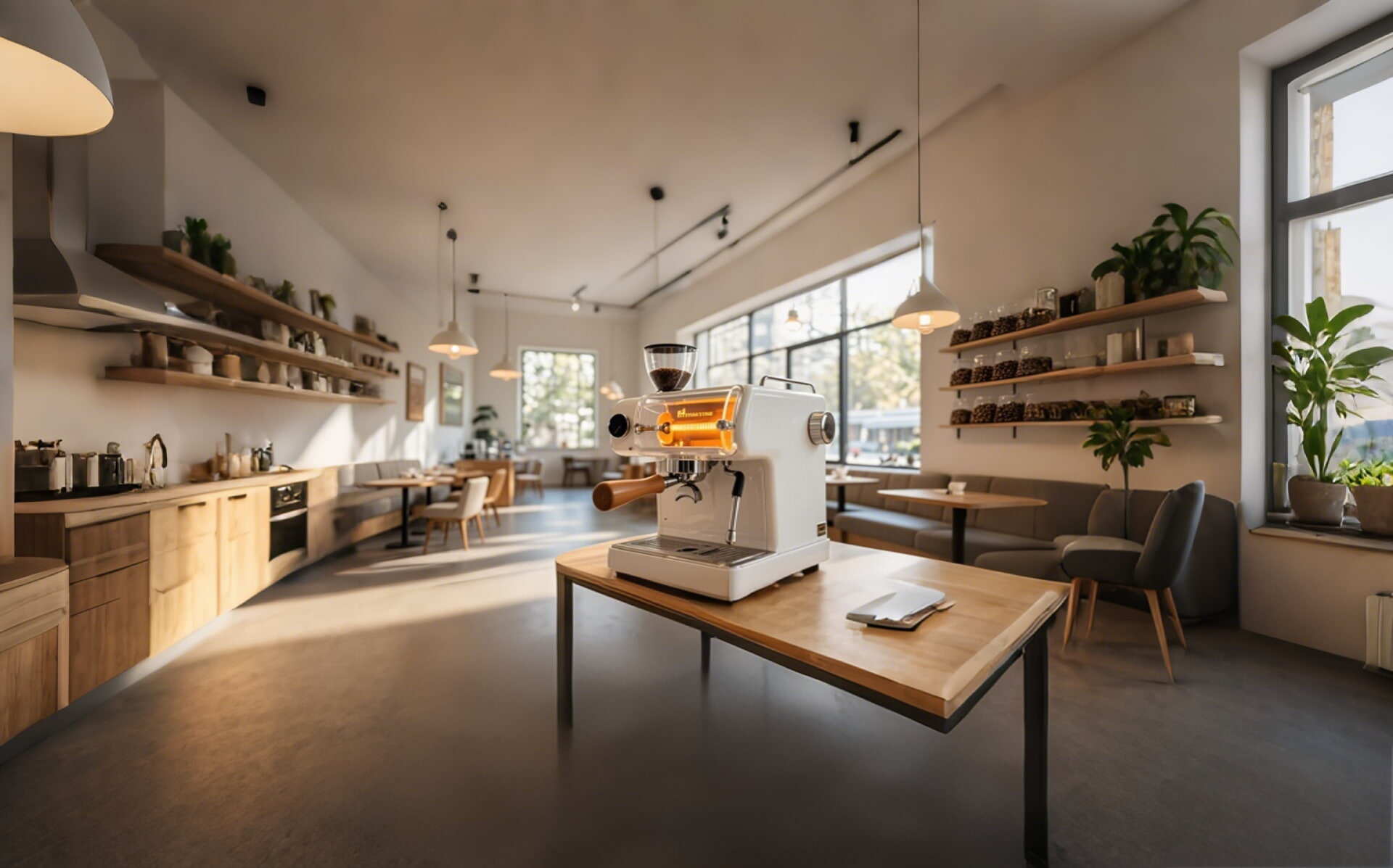The Ultimate Guide to Modern Coffee Grinding Solutions
The rich aroma of freshly ground coffee beans can transform any ordinary morning into an extraordinary experience. Coffee mills have evolved from simple hand-cranked devices to sophisticated machines that preserve the delicate flavors and oils of premium coffee beans. Whether you're a home barista or looking to upgrade your office break room, selecting the right coffee mill can significantly impact your daily brew quality.
Today's coffee mills combine precision engineering with user-friendly features, making it easier than ever to achieve cafe-quality grounds. As we explore the top options available, we'll focus on models that offer versatility, consistency, and durability - essential factors for both home and professional environments.
Essential Features of Premium Coffee Mills
Grinding Mechanism and Materials
At the heart of every quality coffee mill lies its grinding mechanism. Premium models typically feature burr grinders, either conical or flat, made from hardened steel or ceramic. These materials ensure longevity and consistent grinding performance, unlike less durable blade grinders. High-end coffee mills often incorporate precision-engineered burrs that can last for years while maintaining their sharp edges.
The material choice affects not only durability but also heat transfer during grinding. Ceramic burrs generate less heat, helping preserve the coffee's essential oils and flavors. Steel burrs, while slightly more prone to heat transfer, offer exceptional durability and precision, especially in higher-end coffee mills.
Grind Size Adjustability
Superior coffee mills provide multiple grind size settings, typically ranging from fine espresso to coarse French press consistency. The best models offer stepless adjustment systems, allowing users to fine-tune their grind size with microscopic precision. This level of control is essential for achieving the perfect extraction with different brewing methods.
Professional-grade coffee mills often feature up to 40 or more distinct grind settings, while entry-level models might offer 15-20 settings. The ability to maintain consistent particle size at any setting marks the difference between average and exceptional coffee mills.
Performance Factors in Modern Coffee Mills
Motor Power and Speed Control
The motor is a crucial component in electric coffee mills, determining both grinding speed and heat generation. Premium models typically feature motors in the 150-250 watt range, providing enough power for smooth operation without excessive heat production. Direct-drive motors, found in higher-end coffee mills, offer better durability and quieter operation compared to gear-driven alternatives.
Speed control mechanisms play a vital role in preserving coffee flavor. Advanced coffee mills incorporate variable speed settings or automatic adjustment systems that optimize grinding speed based on bean type and desired grind size. This technology helps prevent bean burning and ensures consistent results.
Capacity and Dosing Accuracy
Bean hopper and ground coffee container capacities vary significantly among coffee mills. Home models typically offer hoppers holding 8-12 ounces of beans, while office-oriented units might accommodate up to a pound or more. The best coffee mills feature precise dosing mechanisms, either through built-in timers or weight-based systems.
Modern coffee mills often include digital displays and programmable dosing options, allowing users to save preferred settings for different brewing methods. This feature proves particularly valuable in office settings where multiple users need consistent results with minimal adjustment.
Maintenance and Longevity Considerations
Cleaning and Care Requirements
Quality coffee mills are designed with maintenance in mind, featuring removable burrs and accessible grinding chambers. Regular cleaning is essential to prevent oil buildup and maintain optimal performance. Premium models often include specialized cleaning brushes and tools for thorough maintenance.
The best coffee mills incorporate anti-static treatments or materials in their ground coffee containers, reducing mess and simplifying cleanup. Some advanced models even feature automatic cleaning reminder systems based on usage patterns.
Warranty and Support Services
Leading manufacturers back their coffee mills with comprehensive warranty coverage, typically ranging from 1-3 years for home models and up to 5 years for commercial-grade units. Professional-level support services, including repair networks and replacement parts availability, indicate a manufacturer's commitment to product longevity.
Consider manufacturers offering online troubleshooting guides, video tutorials, and responsive customer service when selecting a coffee mill. These resources can prove invaluable for maintaining optimal performance throughout the device's lifespan.

Smart Features and Modern Innovations
Digital Integration and Programming
Contemporary coffee mills increasingly incorporate smart features like Bluetooth connectivity and mobile app integration. These technologies enable users to track grinding statistics, schedule maintenance, and even update grinding parameters remotely. Advanced models might include cloud-based recipe storage and sharing capabilities.
Some manufacturers have introduced AI-powered grinding adjustment systems that learn from user preferences and automatically optimize settings based on bean type and brewing method. While these features add cost, they can significantly enhance the grinding experience for tech-savvy users.
Environmental and Energy Efficiency
Modern coffee mills emphasize sustainability through energy-efficient motors and eco-friendly materials. Many manufacturers now offer models with auto-shutoff features and standby modes that minimize power consumption. Some premium coffee mills incorporate recycled materials in their construction while maintaining professional-grade durability.
Advanced power management systems in high-end coffee mills can reduce energy consumption by up to 30% compared to traditional models, making them ideal for environmentally conscious homes and offices.
Frequently Asked Questions
How often should I clean my coffee mill?
Professional-grade coffee mills should be cleaned thoroughly every 1-2 weeks with heavy use. Daily brushing of the grinding chamber and monthly deep cleaning of the burrs will ensure optimal performance and flavor preservation. Consider more frequent cleaning when switching between different types of coffee beans.
What's the ideal grind size for different brewing methods?
Different brewing methods require specific grind sizes: espresso needs a fine grind (0.1-0.3mm), pour-over works best with medium grind (0.5-0.7mm), and French press requires coarse grind (0.8-1.0mm). Quality coffee mills provide the precision necessary to achieve these specific sizes consistently.
How long should coffee mills last with proper maintenance?
High-quality coffee mills, when properly maintained, can last 5-10 years or more. Professional-grade models with hardened steel burrs might need burr replacement every 1,000-1,500 pounds of coffee ground, while ceramic burrs can last even longer under normal use conditions.




